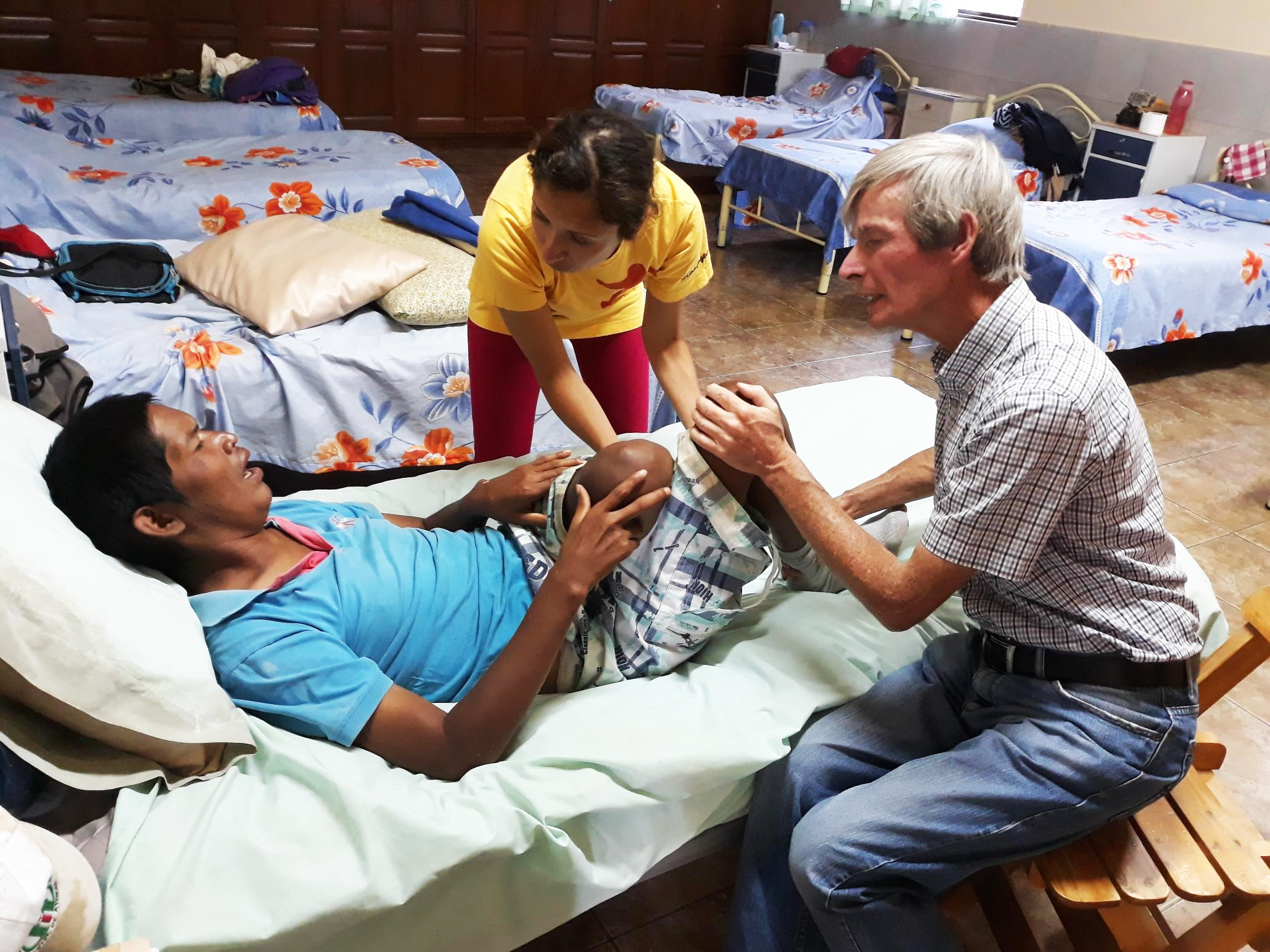
John O´ Donoghue is learning physical therapy from physical therapist Karen Villarroel Montecinos to help with the rehabilitation of Francisco Ayala
Francisco Ayala is a man who reminds our Maryknoll Lay Missioners community in Bolivia that we must constantly be prepared to answer God´s call to creatively work together to achieve inclusive, social justice. Francisco is from the small town named Entre Ríos, located in the tropical area of Cochabamba, Bolivia. As best as we can learn, in early 2018 Francisco was a 34-year-old laborer working for his daily bread like so many other residents in an area known for its tropical climate, fruits, adobe homes with thatched roofs and simple lifestyle.
On April 30, 2018, the police found Francisco lying by the side of the road of the one main highway connecting the tropical area with the high plains of La Paz and the low lands of Santa Cruz. Francisco had been struck by a vehicle, a victim of a hit-and-run driver never to be found. He was taken via ambulance to the City of Cochabamba where the doctors operated to relieve the pressure on his brain due to his closed head injuries. After almost three months of hospitalization, Francisco was released from the hospital in Cochabamba.
Francisco, however, could no longer walk nor talk nor could any relative or friend be identified despite various announcements in different types of media and posting of posters with his picture in neighborhood bulletin boards and stores.
The Municipality of Entre Rios does not have a hospital nor a residential program for the rehabilitation of people with disabilities. Francisco was transferred from a hospital in the City of Cochabamba to the nearby municipality of Ivirgarzama which has a small hospital. Everyone prayed that family and friends could be identified which would provide the required care.
No one came forward. The hospital of Ivirgarzama became overcrowded, and Francisco was required to sleep on a straw mattress in a hallway.
In Francisco’s community of Entre Rios, we have a project called Social Inclusion of People with Disabilities. The project uses community-based rehabilitation, a methodology promoted by the World Health Organization that focuses on working with the person with disability, their family and their community to achieve rehabilitation. Instead of placing people in specialized centers, community-based rehabilitation works to keep those with disabilities in their home communities by empowering their natural support system.
When municipal authority Basilio Marino first told me about Francisco, I felt that Francisco’s needs were way beyond the capacity of our Social Inclusion Project. But Basilio and other municipal authorities repeatedly asked us for help.
I really didn’t think we could help, but as I kept thinking about ways to do it, fellow Maryknoll lay missioner John O’Donoghue came to mind. John collaborates with St. Teresa of Calcutta’s Missionaries of Charity in their ministry of providing a hospice to homeless and terminally ill men in the City of Cochabamba. I asked John to set up a meeting with the director of the Casa Madre Teresa, Mother Superior Albertina.
I wondered if the Sisters would accept Francisco, who did not fit their criteria. The night before the meeting, I prayed for guidance. and found comfort in the words, “Therefore I tell you, do not worry about your life, what you will eat or drink; or about your body, what you will wear” (Matthew 6:25).
After a discussion of Francisco´s care needs and his total lack of family support, Sister Albertina agreed to accept Francisco for residential care and rehabilitation with one condition: John O’Donoghue had to assume full responsibility for leading Francisco´s care and rehabilitation.
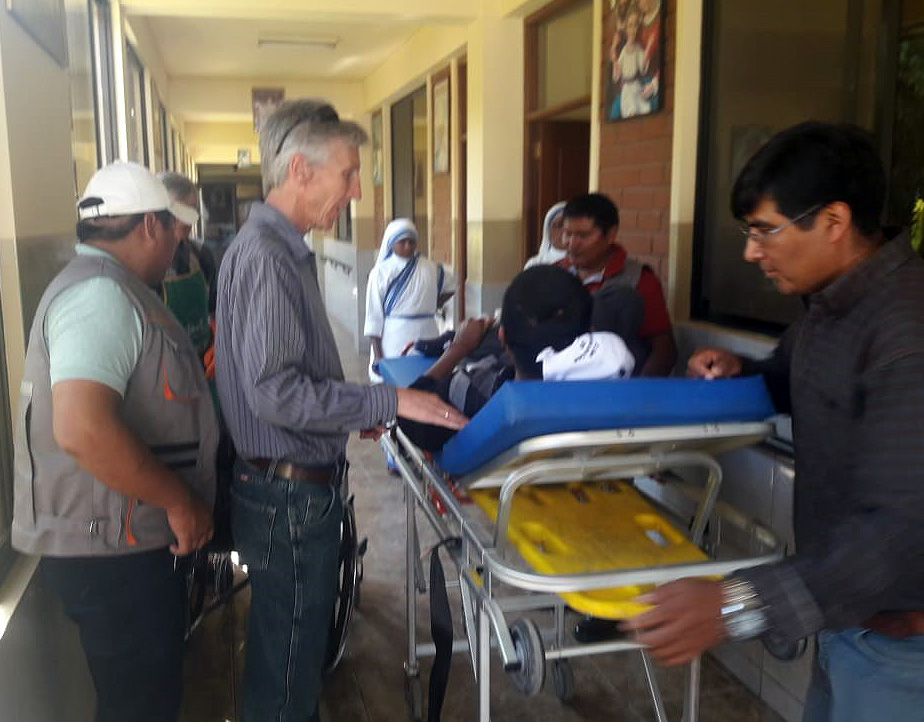
After almost a year in the hospital, Francisco Ayala arrives at the Missionaries of Charity Center in Cochabamba. Joe Loney is to the left of the stretcher.
The 2019 Holy Week was truly blessed for Francisco. We were able to get him transferred that Wednesday by ambulance from Ivirgarzama to Casa Madre Teresa. Francisco is still adapting to his new residence. John coordinates his care. Francisco needs help just to get from his bed to a borrowed wheelchair; the restroom or shower are greater challenges.
John is learning physical therapy techniques so he can help Francisco to learn to balance himself on his feet. Francisco also needs to learn to speak again. At this moment, his speech is very hard to understand, and so he often communicates with gestures, unintelligible sounds and sobs.
Jesus taught us through his words and deeds to be compassionate with the less fortunate, to never give up hope, to share, to work in teams and to be generous with basic, human care for one another.
For more than a year Francisco has carried a heavy cross. We pray that through collaboration, patience and dedication to rehabilitation, Francisco can regain his independence. We are inspired by Jesus’ example and values to collaborate in the rehabilitation of Francisco so that he can enjoy once again the fruits of human dignity.
Photos courtesy of Joe Loney.

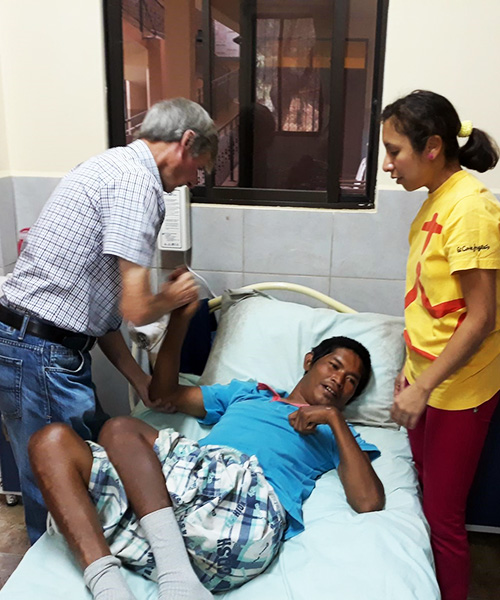

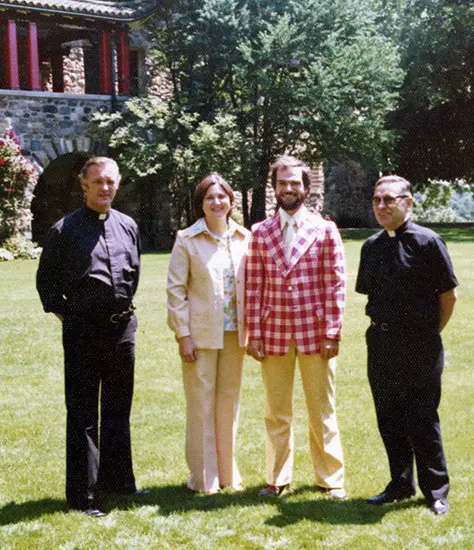
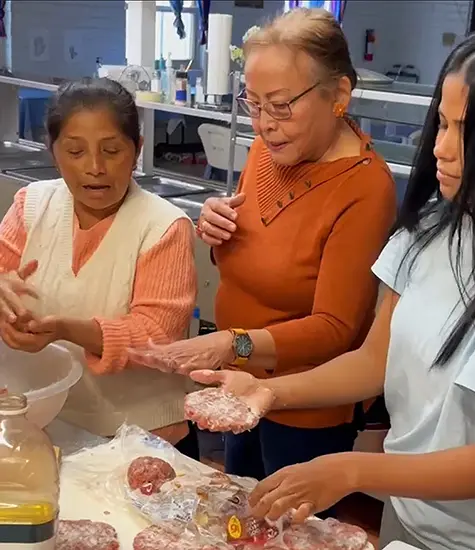
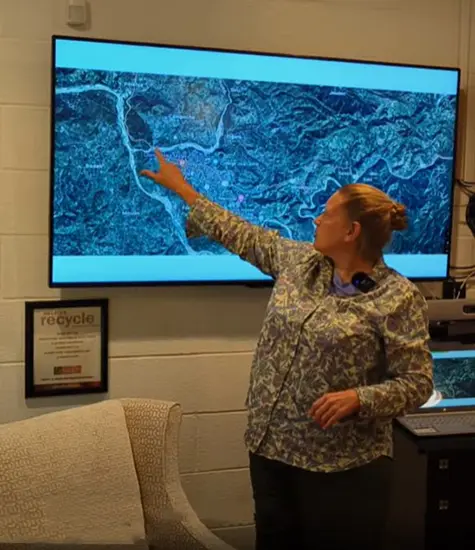




I was touched by Francisco’s difficulty to communicate due to his injuries. My daughter has autism & is mostly non-verbal. We communicate by using the PECs system (picture exchange communication). It is a system of pictures with words underneath. It can be for anything from food, clothing, activities, feelings. She can point or pick out the word with matching picture. Is this something that would help Francisco? I have one that that covers the topic of medical care (do you have pain? where is it?, etc.). It is in English and Spanish. Please let me know if you would like to see what it looks like ( I could scan & email it to you). It is a simple method & does not require any equipment. You can also google, PECs to get a better understanding.
With many prayers for your good work,
JoAnn Atlas